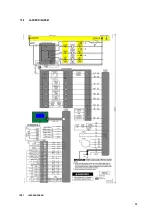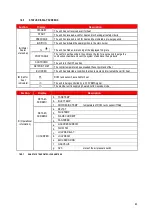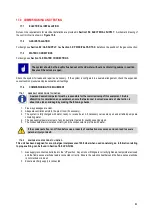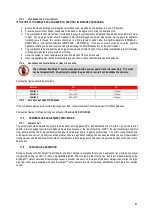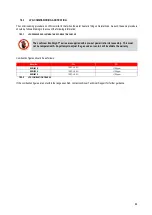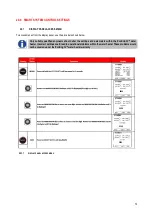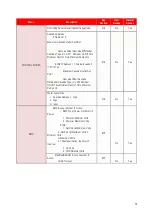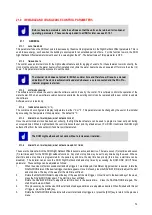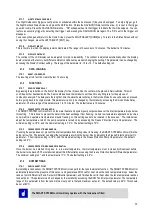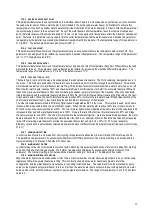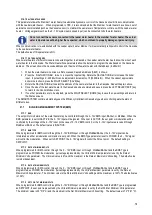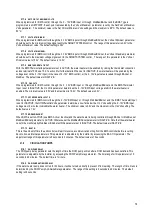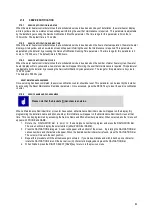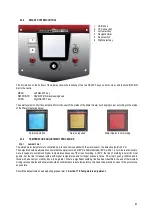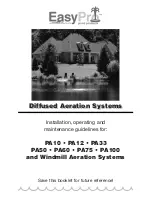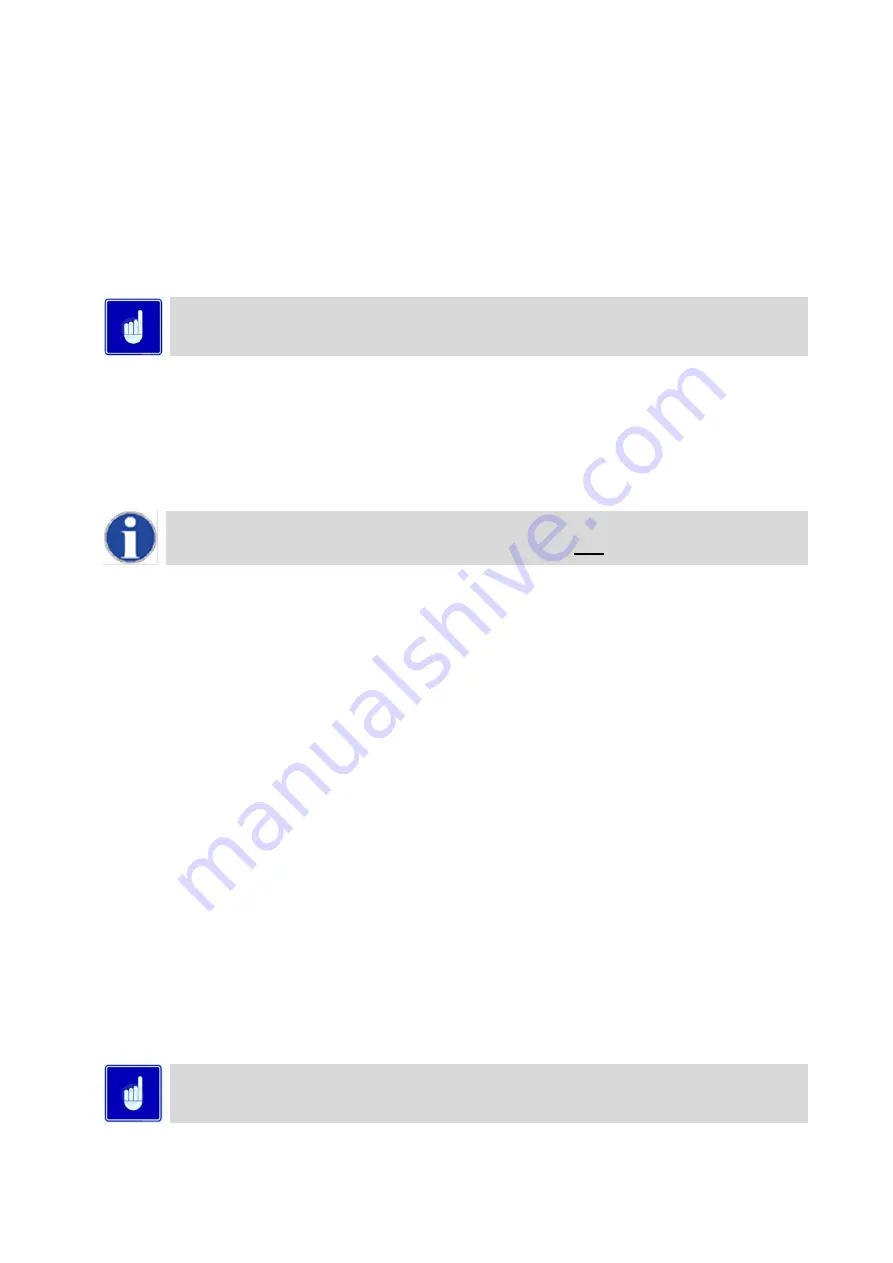
68
19.4
BURNER REMOVAL
If it has been determined that the flame picture is unacceptable, the burner can be removed and cleaned using the following
procedure:
1.
Isolate the electrical and gas supplies to the heater.
2.
Allow the water heater to cool down.
3.
Disconnect the wiring connections to the ignition electrode.
4.
Disconnect the power and control connection leads and earthing wire from the combustion fan.
5.
Apply suitable release oil to the 6 studs around the edge of burner door.
6.
Remove the 6 retaining nuts around the edge of the burner door.
NOTE: Once loosened, the nuts should be removed by hand. If any of the nuts seize, the nut should
gently be re-tightened and additional release oil used.
7.
Withdraw the heat exchanger front plate and burner assembly from the heat exchanger complete with the combustion fan.
8.
With the burner assembly away from the water heater, the burner can be gently cleaned with the brush attachment of a
vacuum cleaner.
The reassembly procedure is the reverse of the above taking care to ensure that the for the heat exchanger front plate sealing
gasket, the combustion fan connection gasket, the burner door insulation and the combustion chamber rear wall insulation are in
good condition or are replaced as necessary.
Note: particular attention should be paid to the combustion chamber rear wall insulation. If any
deterioration in the insulating material is noted, the insulation panel must be replaced.
19.5
CLEANING THE HEAT EXCHANGER
To clean the heat exchanger, the following procedure should be carried out:
1.
Remove the burner as above.
2.
Use a vacuum cleaner to remove any accumulation on the heating surfaces. Do not use any solvent.
3.
Finish cleaning using a clean cloth dampened with warm water.
4.
Reinstall the burner.
5.
Close isolation valves on piping to isolate the appliance from the system. Attach a hose to the appliance drain valve and
flush the heat exchanger thoroughly with clean water by using purging valves to allow water to flow through the water
make-up line to the appliance.
6.
Once the heat exchanger has been flushed, close the drain valve and open the isolation valves.
7.
Restart the water heater as detailed in Section 17.4.3:
PROCEDURE FOR INITIAL LIGHTING.
19.6
DRAINING WATER HEATER SYSTEM
The water heater must be drained if it is to be shut down and exposed to freezing temperatures. Maintenance and service procedures
may also require draining the water heater.
1.
Turn off the water heater electrical disconnect switch.
2.
Connect a hose to the system drain valve.
3.
Locate hose’s discharge in an area where hot water will not cause any damage or injury.
4.
Close the cold-water inlet valve from the header tank or pressurisation unit to water heater system.
5.
Open the drain valve.
6.
Working systematically from the highest point in the heating system, open bleed valves to allow the system to drain.
7.
Close all bleed valves
8.
If the water heater is being drained for an extended shutdown, it is suggested the drain valve be left open during this
period.
Note: The heat exchanger cannot be completely drained of water without purging with compressed air at a
pressure of 1 bar.
Summary of Contents for ECOKNIGHT EKW116CE
Page 28: ...28 Max distance between brackets ...
Page 29: ...29 ...
Page 30: ...30 ...
Page 34: ...34 ...
Page 35: ...35 ...
Page 55: ...55 15 8 WIRING DIAGRAM 15 8 1 WIRING DIAGRAM ...
Page 56: ...56 15 9 LADDER DIAGRAM 15 9 1 LADDER DIAGRAM ...
Page 87: ...87 ...
Page 88: ...88 ...



